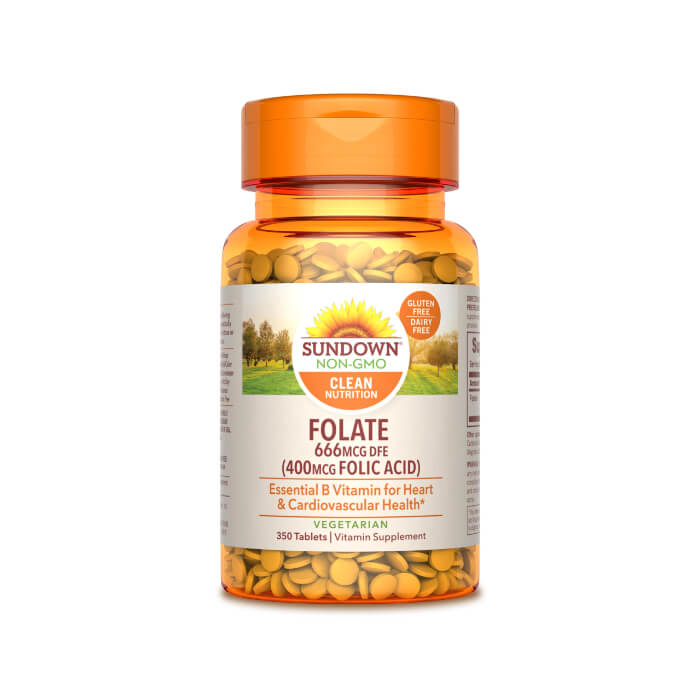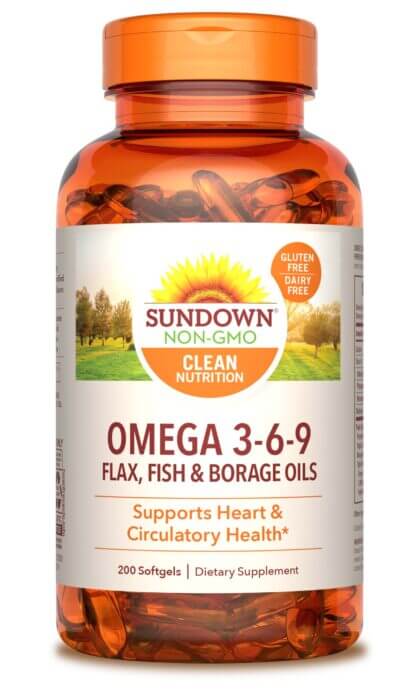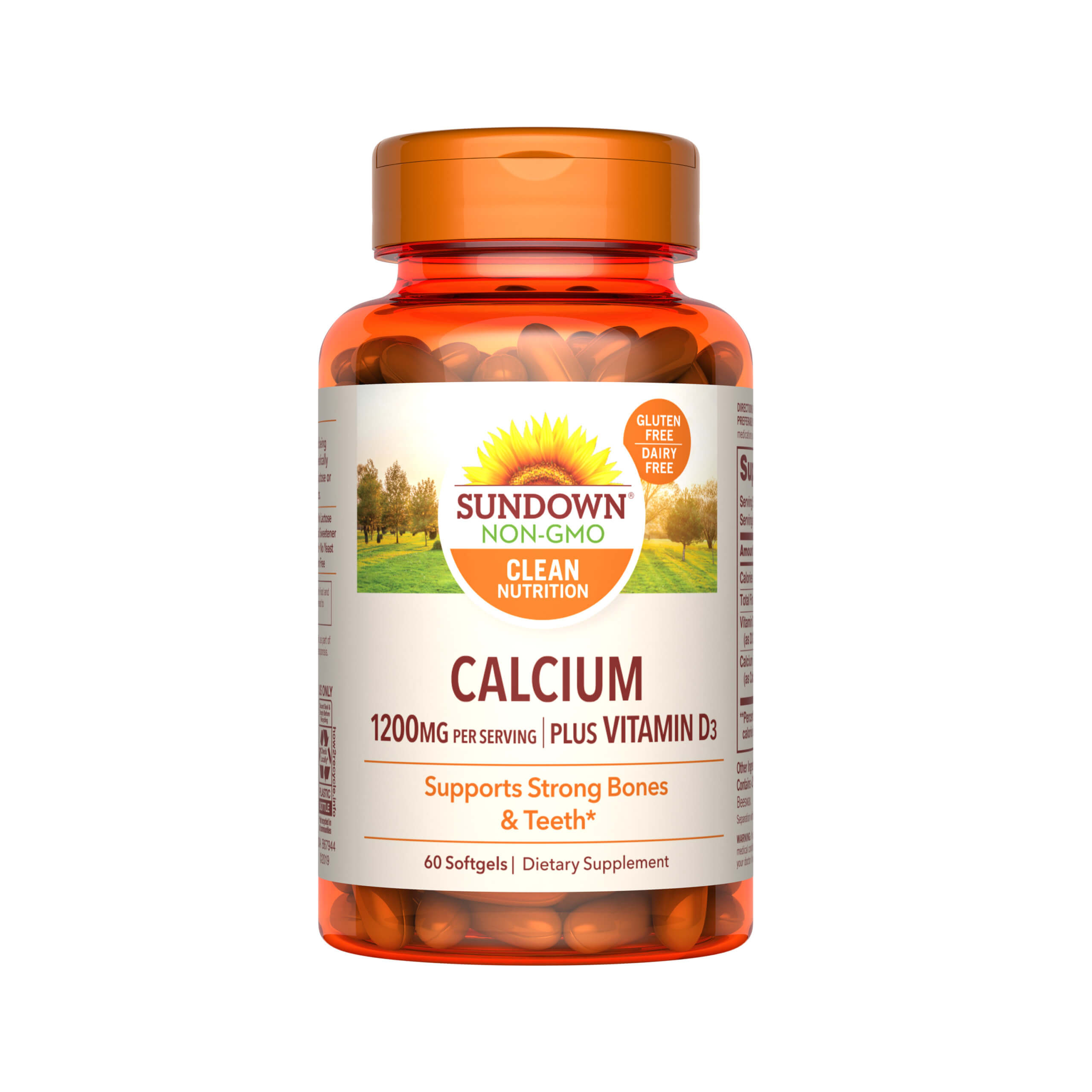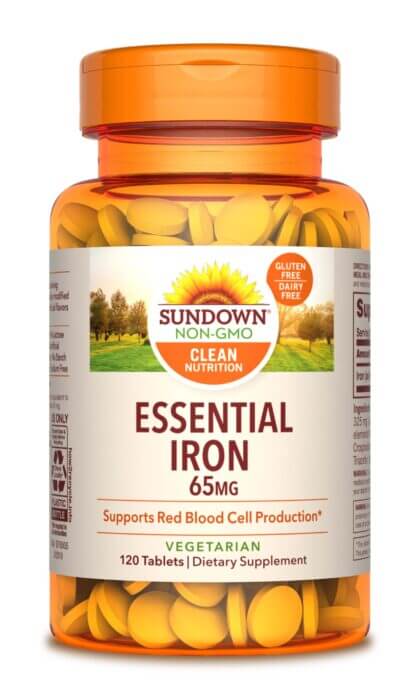The importance of prenatal health

Key Takeaways
- Prenatal supplements such as folic acid, omega-3, calcium and iron offer key nutrients and minerals that can help support a healthy pregnancy and optimum prenatal care.
- Other ways to prepare for pregnancy include eating a safe and balanced diet, getting regular dental check ups, exercising regularly and making sure to avoid high-stress situations.
Preparing to have a baby is both exciting and nerve wracking — it’s a big life change! Whether it’s your first or fifth pregnancy, one thing stays the same: creating the best environment possible for the baby is the number one priority. With a healthy body, mothers can better nurture a growing baby and reduce the risk of complications during pregnancy. Since so much critical development is taking place in the womb, it’s important to help facilitate that growth.
Taking steps for prenatal health two to three months before you start trying to get pregnant can help support a healthy pregnancy for both mother and baby.
1. Vitamins and minerals for prenatal health
Folic Acid: Folic acid is an essential B-vitamin important for the healthy growth and development of the baby’s brain, spine and skull.*1 It is recommended that women consume 400 mcg of folic acid per day at least one month before trying to get pregnant. Once pregnant, this amount should increase to a daily intake of 600 mcg.2 Folic acid in its food form, folate, can be found in leafy green vegetables, legumes, and in fruits such as bananas, lemons, oranges and strawberries. It’s important to note that folate can break down easily through heat and light, and therefore may not be as easily absorbed by the body as folic acid.3 Because it may be more difficult to get the amount of folate expecting mothers need just from food, a folic acid supplement is a great way to get your daily dose in.
Omega-3s: Omega-3s provide the building blocks for brain and retinal development of the baby.*4 Omega-3s are essential fatty acids, which means that these healthy fats cannot be produced by the body, and must be obtained through diet. There are three types of omega-3 fatty acids: alpha-linolenic acid (ALA), eicosapentaenoic acid (EPA), and docosahexaenoic acid (DHA). There are also a variety of foods that are rich in omega-3s, as seen in the table below. Recent surveys have found that women in the US do not eat enough fish to get their omega-3s, so a supplement may be a viable option for expecting mothers.
| Omega-3 containing foods | |||
| Fish (DHA) | Nuts (ALA) | Plant oils (DHA) | Fortified foods |
|
|
|
|
Iron: During pregnancy, more iron is needed by the body to be supplied to the fetus and placenta, as well as to increase the red blood cell count of the mother. Pregnant women are actually among the groups most at risk for iron deficiency. The average pregnant woman is recommended to consume 30 mg of iron per day, an amount that may increase depending on iron levels before pregnancy, or if you’re carrying more than one child.5 Foods that are rich in iron include red meat, seafood such as fish, shrimp and oysters, leafy green vegetables, whole wheat breads and pastas and fruits including dates, raisins, strawberries and legumes. It’s important to note that the recommended iron intake for a pregnant woman is actually 12mg more than a non-pregnant woman.6 To be sure you’re getting the recommended dose, you may want to consider a prenatal supplement.
Calcium: Calcium helps babies develop strong bones and teeth, and can also aid in muscle, heart and nerve development.*7 In mothers, calcium is as important as ever in supporting bone and teeth health*. The FDA recommends a daily intake of 1,200 mg of calcium for pregnant and lactating women. Some calcium-rich foods include almonds, dried figs, oranges, soybeans, garbanzo, white and pinto beans, low-fat dairy such as milk or yogurt and leafy greens including kale and spinach. Another way to obtain the recommended dose of calcium is through a healthy intake of supplements.
Best supplements to support prenatal health
- Vegan and non-GMO^ Folic Acid 400 mcg Tablets contains folate, an essential B-vitamin that supports heart and cardiovascular health*.
- The Triple Omega 3-6-9 Softgels supports heart and circulatory health*.
- Packed with 1200mg per serving, Calcium Plus Vitamin D3 Softgels supports strong bones and teeth*.
- Don’t let iron deficiency complicate your pregnancy! Essential Iron 65 mg Tablets supports red blood cell production* and is vegan, gluten-free, dairy free, and non-GMO^.
2. Eat a safe and balanced diet
A healthy, balanced diet can help support any bodily changes of the mother, and optimal growth of the baby. Instead of ‘eating for two’, focus on eating twice as healthy, ideally with a diet consisting of fruits, vegetables, whole-grains, and low-fat dairy products. For a healthy daily caloric intake, it is recommended to add an extra 300 calories to your usual intake pre-pregnancy.8 To minimize risk of exposure to bad bacteria, avoid certain foods such as raw fish, undercooked meats, deli meats, and unpasteurized cheeses. Eating raw and undercooked food can increase the risk of contracting the infection Listeriosis, which is about 20 times more common in pregnant women than the general population.9 Listeriosis can cause mild flu-like symptoms for the mother, but can lead to serious and potentially life-threatening complications for the baby. As always, consult your doctor regarding your diet and what foods are suitable to eat during pregnancy.
3. Get regular dental checkups
Maintaining dental health is always highly recommended, but may be more pressing while pregnant. A woman’s gums are more likely to become inflamed or infected because of hormonal changes and increased blood flow during pregnancy. As such, nearly 60 to 75 percent of pregnant women have gingivitis, an early stage of gum disease.10 Poor oral health for the mother can also lead to poor health outcomes for the baby, including premature birth and low birth weight. You may have to curb your sweet tooth too—watch out for cavities, as those bacteria can later be transmitted to the baby. According to the CDC, children of mothers who have a lot of untreated cavities are more than three times as likely to have cavities as a child. If you are pregnant, let your dentist know and schedule regular appointments to keep your oral health in check.
4. Exercise regularly
Continue or start regular physical activity upon consultation with your doctor. Working up a sweat can actually reduce back pain, ease constipation, strengthen heart and blood vessels and improve mood levels.11 Exercise during pregnancy was also found to have positive effects on birth weight, cardiovascular health and nervous system development.12 This doesn’t mean you have to start training like you’re headed to the Olympics, though! As a rule of thumb, pregnant women should get at least 2 and a half hours of moderate-intensity exercise each week. Some forms of exercise that are recommended for expecting mothers include brisk walking, swimming, water aerobics, stationary bicycling, and prenatal yoga and pilates classes. Make sure to avoid contact sports that may put you at risk of getting hit in the abdomen, activities that can result in a fall, “hot” yoga or pilates classes that can cause you to feel overheated or anything at high altitudes if you do not already live in an elevated area.
5. Reduce stress
While pregnant, it is especially important to avoid stressful situations. High levels of prolonged stress can lead to poor outcomes for both the mother and the baby. For example, stressed mothers may be more vulnerable to illness due to the effects of stress on the immune system. Stress can also affect the baby through increased chances of a premature birth, low infant birth weight, a greater postnatal risk of the child developing emotional problems, attention deficit hyperactivity disorder (ADHD) and more.13 One useful method to reduce stress is to practice mindfulness and meditation, and simply to take a moment during the day to take deep breaths, ground yourself and relax the body. Keeping your stresses pent up will also likely cause them to bubble over, which is why it’s important to lean on your support systems and let them know how you’re feeling. It’s best not to carry every burden yourself, especially when you’re already carrying the most precious cargo of all! With a baby on the way, removing unnecessary stressors from your life and replacing them with practices to elevate your health and mood is one of the most self-nourishing decisions you can make.
Breaking it down
Starting as early as three months before trying to get pregnant, taking various supplements such as folic acid, omega-3, calcium and iron are great ways to support a healthy pregnancy. Prenatal health care, however, consists of more than just what you put into your body. Getting an ample amount of exercise, regular dental checkups, and reducing exposure to high-stress situations are also recommended in order to support the healthy development of a growing baby. All in all, surround yourself with the support you need, be it from your doctor, family members or friends, and make the healthy choices necessary to nourish both yourself and your child. Motherhood is an incredible journey, so start off strong with a great prenatal care routine!
For more tips on health and wellness, and to learn more about your favorite Sundown® products, follow us on Instagram @sundownnutrition
Sources:
- https://www.ncbi.nlm.nih.gov/pmc/articles/PMC3218540/#:~:text=Main%20Points,and%20fetuses%20(congenital%20abnormalities)
- https://www.acog.org/womens-health/faqs/nutrition-during-pregnancy
- https://www.nichd.nih.gov/health/topics/preconceptioncare/conditioninfo/healthy-pregnancy
- https://www.ncbi.nlm.nih.gov/pmc/articles/PMC3046737/#:~:text=Adequate%20consumption%20of%20omega%2D3,and%20in%20preventing%20perinatal%20depression
- https://utswmed.org/medblog/iron-supplements-pregnancy/
- https://www.ncbi.nlm.nih.gov/books/NBK222309/
- https://www.ncbi.nlm.nih.gov/pmc/articles/PMC5561751/
- https://www.hopkinsmedicine.org/health/wellness-and-prevention/nutrition-during-pregnancy
- https://www.ncbi.nlm.nih.gov/pmc/articles/PMC2621056/
- https://www.cdc.gov/oralhealth/publications/features/pregnancy-and-oral-health.html
- https://www.acog.org/womens-health/faqs/exercise-during-pregnancy
- https://www.ncbi.nlm.nih.gov/pmc/articles/PMC5075987/
- https://www.acog.org/womens-health/faqs/exercise-during-pregnancy#:~:text=Regular%20exercise%
*These statements have not been evaluated by the Food and Drug Administration. These products are not intended to diagnose, treat, cure or prevent any disease.
The information provided on this site is intended for your general knowledge only and is not a substitute for professional medical advice or treatment for specific medical conditions. Always seek the advice of your physician or other qualified healthcare provider with any questions you may have regarding a medical condition. The information on this website is not intended to diagnose, treat, cure or prevent any disease. Never disregard medical advice or delay in seeking it because of something you have read on the Sundown® site.
^ Applies to all Sundown Adult products. Please check back of label for product information.
Products featured in this article

 June 29, 2021
June 29, 2021 9 min read
9 min read


